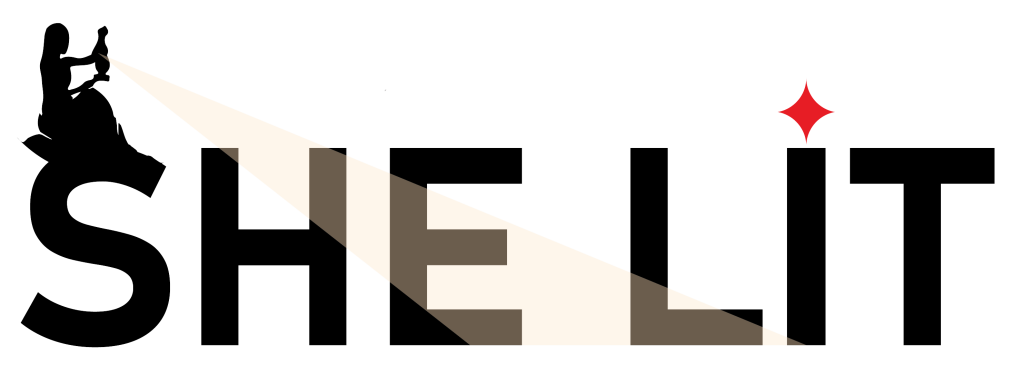An exclusive SheLit conversation with Ria, Founder of Get Fit With Ria
Ria, can you share your journey of becoming a nutritionist and what inspired you to focus on women’s health issues?
My journey into nutrition began with my own struggles. A few years ago, I was nearly 30 kilos overweight, constantly fatigued, and dealing with hormonal issues. I tried everything — fad diets, intense workouts, quick fixes — but nothing worked in the long run. That’s when I discovered the healing power of food.
By making small but consistent changes to my diet and lifestyle, I not only lost 30 kilos but also regained my energy, confidence, and hormonal balance. That transformation changed my life and showed me how powerful nutrition truly is.
As I deepened my knowledge, I noticed how many women around me were silently battling PCOS, thyroid issues, irregular periods, bloating, and weight gain — often without the right guidance. This inspired me to create Get Fit With Ria, a platform dedicated to women’s health, focusing on practical, personalized, and sustainable nutrition instead of extremes or shortcuts.
Why do you think women’s health is often neglected in India, especially when it comes to diet and lifestyle?
In India, women are conditioned from childhood to put others’ needs before their own. They eat last at the table, compromise on rest, and ignore their health concerns. Fatigue, irregular cycles, or digestive problems are often dismissed as “normal” until they become severe.
Moreover, preventive health awareness is low. Most women wait until conditions worsen before seeking help — when in reality, simple changes in diet and lifestyle can prevent many issues. To make matters worse, society places more importance on being “slim” rather than being “healthy,” pushing women into harmful fad diets instead of long-term wellness.
What are some common nutritional mistakes you see women making in their daily lives?
The most frequent mistakes include:
- Skipping breakfast and relying only on tea or coffee, leading to energy crashes.
- Low protein intake, as Indian diets are often carb-heavy.
- Crash dieting, which slows metabolism and worsens hormonal issues.
- Poor hydration, with many women drinking very little water or relying on sugary drinks.
- Over-reliance on packaged ‘diet foods’ instead of wholesome home-cooked meals.
Correcting these basics alone can bring a remarkable improvement in energy, mood, and weight management.
Women often juggle multiple roles — student, professional, homemaker, mother. How can they maintain a healthy diet despite busy schedules?
Health doesn’t have to be complicated. Keeping quick, nutritious options handy is the key — boiled eggs, fruits, roasted makhana, curd bowls, or soaked almonds work wonders on busy days.
Meal prepping is another game-changer. Chopping vegetables, soaking dals, or preparing chutneys twice a week can reduce cooking time drastically. Most importantly, women should let go of guilt. Even simple meals like khichdi, dal-rice, or a smoothie for dinner are perfectly healthy.
A nutritious lifestyle is built on consistency, not perfection.
How important is nutrition in managing menstrual health, mood swings, and energy levels?
Extremely important. Deficiencies often worsen menstrual cramps, fatigue, and mood swings. For example:
- Iron-rich foods (leafy greens, jaggery) support blood loss.
- Magnesium (nuts, seeds, dark chocolate) eases cramps.
- B-vitamins boost energy and stabilize mood.
Balanced meals with protein, fiber, and healthy fats regulate blood sugar, reducing irritability and tiredness. Many women notice lighter, calmer, and more energetic cycles simply by eating right.
PCOD/PCOS has become very common among young women today. What early signs should not be ignored?
Early signs include: irregular or missed periods, sudden weight gain (especially belly fat), stubborn acne, excessive facial hair, thinning scalp hair, bloating, persistent fatigue, mood swings, or brain fog. These are clear signals of hormonal imbalance and should never be ignored.
How much of PCOD/PCOS can be managed through diet and lifestyle rather than medicines?
In most cases, 70–80% of PCOS management is possible through diet and lifestyle. The root cause is usually insulin resistance, which improves significantly with balanced meals, regular activity, stress management, and quality sleep.
Medicines can help in certain cases, but they work best when combined with sustainable lifestyle habits. I’ve seen countless women regulate their cycles, improve skin, lose weight, and even restore fertility simply through consistent changes.
Many women blame themselves for weight gain due to PCOD. What’s your advice to them?
First, know this: it’s not your fault. PCOD-related weight gain is hormonal and metabolic, not a lack of willpower. Self-blame only increases stress, which makes the condition worse.
Instead, focus on health markers beyond the scale — better sleep, improved cycles, glowing skin, and higher energy. These are signs of healing. Weight loss is possible, but it takes patience. Remember, your worth is not defined by a number. Self-acceptance and self-care are equally important parts of healing.
The key is to shift the question from “How do I look?” to “How do I feel?”. A body that is energetic, strong, and happy is far healthier than one that just “looks good.”
It also helps to curate your social media feed mindfully — unfollow accounts that fuel insecurity and instead follow those that promote body positivity, education, and realistic health journeys.
What role does nutrition play in boosting women’s confidence and mental well-being?
Food impacts not just the body, but the mind. Balanced nutrition stabilizes mood, reduces anxiety, and improves sleep. Physically, it reduces bloating, clears skin, and strengthens hair — all of which naturally boost confidence.
I’ve seen women join my programs feeling drained and low, only to walk out weeks later full of energy, positivity, and confidence. Good nutrition isn’t about shrinking yourself — it’s about building a stronger, more confident self.
What are your top 5 nutrition tips every young girl and woman should follow?
Never skip breakfast — Start the day with protein + fiber for lasting energy.
Add protein to every meal — Eggs, dal, paneer, sprouts, chicken, or fish.
Stay hydrated — Drink water, coconut water, or infused jeera/lemon water.
Don’t fear healthy fats — Nuts, seeds, ghee, and olive oil support hormones.
Eat seasonal fruits and vegetables — Nature gives your body what it needs each season.
How can mothers ensure their daughters develop healthy food habits early on?
Children learn by observing. If mothers eat balanced meals and speak positively about food, daughters will follow. Avoid labeling foods as “good” or “bad” — instead, teach moderation.
For growing girls, meals rich in protein (dals, paneer, eggs), iron (greens, dates, jaggery), and calcium (milk, curd, sesame, ragi) are vital. Encourage simple habits like eating breakfast daily, drinking water, and choosing fruits and nuts over packaged snacks. These early habits can prevent conditions like anemia or PCOS later in life.
If a woman is facing fatigue, irregular periods, or hormonal imbalance, what should be her first steps?
The first step is awareness — don’t ignore these symptoms. Get basic health tests done (thyroid, vitamin D, B12, iron). Next, make small but powerful lifestyle changes: eat balanced home-cooked meals, cut down sugar and processed foods, get adequate sleep, and move at least 20 minutes daily. Consistency with these basics can bring significant improvements.
What’s your message for women who want to take charge of their health but don’t know where to start?
Start small and stay consistent. Choose one habit at a time — drink water upon waking, add a fruit to lunch, or sleep on time.
Progress comes from patience, not punishment.
Most importantly, don’t compare your journey to others. Every woman’s body heals at its own pace. Seek guidance when needed, but always remember: you deserve to feel good in your body.
Finally, how do you see women’s health awareness changing in the next 10 years, and what role do you wish to play?
I believe the next decade will see women’s health becoming more open, accepted, and prioritized. Topics like PCOS, thyroid, menopause, fertility, and mental health will become mainstream, shedding the stigma attached to them. Nutrition will no longer be an afterthought but the foundation of healthcare.
Through Get Fit With Ria, I want to be part of this movement — by educating, empowering, and guiding women with sustainable, practical solutions. My dream is to create a ripple effect where healthier women inspire healthier generations.
Ria’s journey is proof that transformation is not about extremes but about balance. Her story reminds every woman that health is not a luxury — it’s a right.
This SheLit exclusive is part of our mission to highlight women creating change. Connect with Ria on Instagram at @nutritionist_rianarangrai

